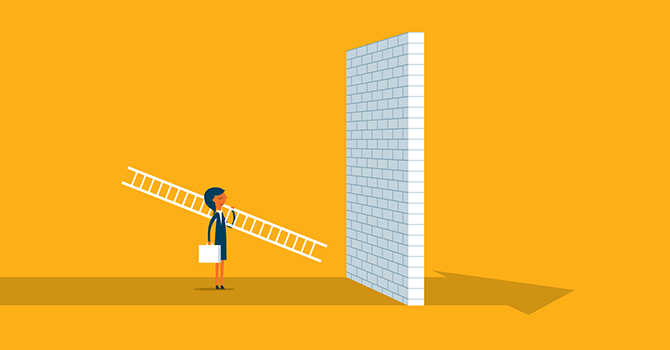Before “The West Wing” and a president named Josiah “Jed” Bartlet, producer Aaron Sorkin tested the American viewing public’s interest in substantive drama and patience for minutiae through a television show named “Sports Night” and a movie named “The American President.”
In the movie, President Andrew Shepherd, played by Michael Douglas, tries to secure two legislative victories -- an anti-crime initiative and new environmental regulations -- while under fire for his romantic relationship with a lobbyist who is working on the passage of the environmental bill.
At one point, the president finds himself at odds with his chief of staff, A.J. MacInerney, played by Martin Sheen (ironically). The president, frustrated with MacInerney’s critique that he has failed to understand the intricacies of the political process, yells, “Is the view pretty good from the cheap seats, A.J.? … Because it occurs to me that in 25 years I’ve never seen your name on a ballot. Now why is that? Why are you always one step behind me?”
It’s a painful moment.
Yet for leaders of institutions and congregations alike, it is a familiar moment.
We know the moment when a person without experience supervising others suggests how we should do the work. We know the moment when a person who has never led a department or a judicatory catalogs our failures and shortcomings. We know the moment when a person who has never carried responsibility for fundraising, budgeting or grant reporting suddenly has self-serving ideas for how (nonexistent) funds should be spent. And we know the moment when a person with no creative solutions to offer is the first to critique others’ ideas.
In these moments, there is the temptation to yell, “Is the view pretty good from the cheap seats?”
Many of our institutions have formed people to become such critics. Like the Muppets Statler and Waldorf, people have learned to take their seats in the balcony, lob insults at the stage, and laugh at how witty and wicked their criticism is. Social media and the blogosphere have only compounded the problem, rewarding the sharpest tongue with retweets, likes and shares.
This criticism takes a toll. Leadership, by its nature, requires risk. But when the risks we take are rewarded with suspicions of our motives, belittling behavior, condescending speeches or ad hominem attacks, we are reminded again why Ron Heifetz called leadership “walking the razor’s edge.”
Leaders’ responses to critique vary, of course.
Some leaders begin to play it safe and shrink. Formerly warm and empathetic people become cold and calloused. Open-hearted leaders become defensive. Previously creative leaders pick more predictable paths, figuring that one less battle to fight is worth it. These leaders know the ache of wanting to do more, to be more, to serve more, but over time, they become hardened realists.
Some leaders do their best to ignore their critics. They carry on. They keep pushing ahead with their priorities. All the while, they hide or deny real wounds, wounds that can fester into resentment, bitterness, depression or anger.
Others choose a yet more perilous path by bullying back. The victim becomes the villain so as to never be a victim again. These leaders demean their critics, alienate their supporters and find themselves ever more alone in leadership.
Duke Divinity School Dean Elaine Heath, in her book “God Unbound: Wisdom from Galatians for the Anxious Church,” offers us a better response.
As anxiety (and criticism) builds in systems, she says, it is necessary for leaders to go deeper into the spiritual practices of the tradition, rooting themselves more firmly in the wisdom and witness of the saints and sinners of the faith across the centuries. It is only from that place of spiritual grounding that leaders can constructively engage their critics.
Only from there can leaders offer the kind of love those critics need, a love that holds them accountable for how they have acted and what they have done in our organizations, congregations and institutions -- a love that calls them to self-examination, confession and repentance.
This kind of love is a challenging, costly force. But it is also a liberating force, freeing the critics from who they have been in order to find who they might yet become. It is a love that invites risk and rewards vulnerability. It is a love that beckons the critics to leave the cheap seats behind, to come to the stage and join the performance.








